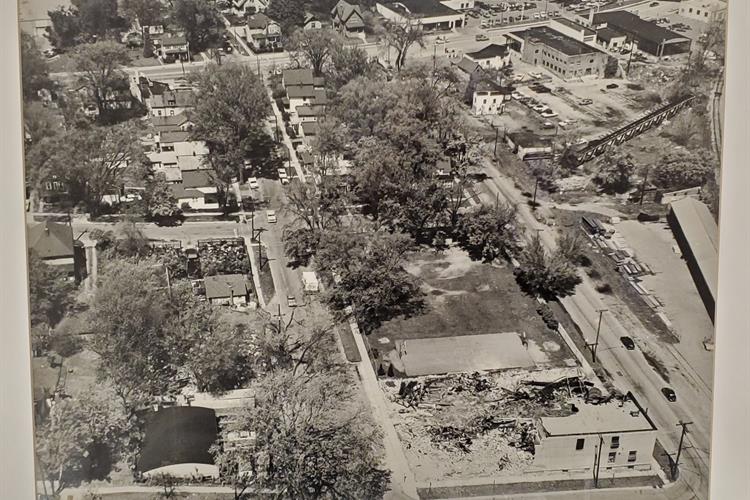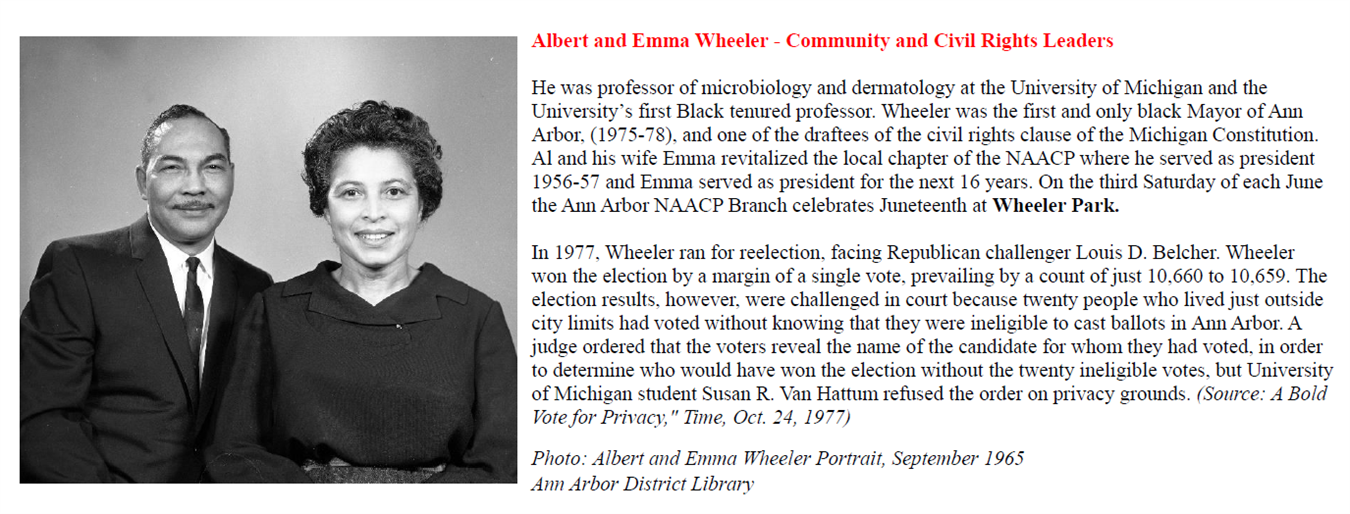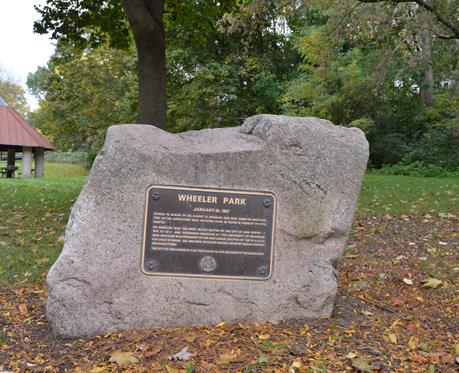History
Ann Arbor's city parks sit on the ancestral and traditional homelands of several indigenous Native peoples. Read a
land acknowledgement from the city and learn more about the early history of the land
here.
Wheeler Park, originally known as Summit Street playground, is surrounded by some of the oldest neighborhoods in the city. Park records note that the City Public Works yard had used this land but relocated and the park department developed a playground that was only a half acre space. A
special report by the Sunday Daily in 1969 gives a glimpse into the history of this centrally located park: “Before the turn of the century, Summit was a hitching station for horse-driving teamsters. Later the station was leveled, and the plot was used by an ice rink by local residents. But the open space was wedged between homes on one side and Peter’s Sausage Co. on the other. Adjacent to the park was Lansky’s Junkyard. Peter’s butchered its pigs in traditional style, "filling the air with dying squeals and the smell of innards being boiled for glue”. Still, as the only playground in what at the time was the city’s Black neighborhood, neighbors say the park was always busy. Coleman Jewett, who grew up in the area, was an enduring presence, organizing activities for the parks department all summer long and refereeing games. Lifelong neighbor Claude Baker, born in 1940, recalls playing baseball on the lot next to the sausage company. If the ball was hit onto Summit Street (which still ran through at the time), "it was a ground rule double."

History Timeline
1958 -North Central Property Owners Association (NPCOA) was founded by Rev. C.W. Patterson of 2nd Baptist Church and Walter Wickliffe, a lifelong neighborhood resident and city forester. After Walter's death, his sister
Letty Wickliffe led NCPOA for nearly thirty years. NCPOA through the decades highlights the community members who have advocated for Wheeler Park and this neighborhood. Today the association is known as the North Central Neighborhood Association.
1961
– The Ann Arbor News reports a
new park shelter at Summit playground. The shelter was used for ice skaters in the winter and for organized recreation in the summer.
1975 – After 15 years of negotiations, the City successfully finds Lanksy's
salvage annex/yard a new home, acquiring the north part of Lanksy's junkyard property for the long desired expansion of Summit Park.
1977 – The Ann Arbor Observer reported in November of 1977 that "Summit Park is Done at Last". Not without some controversy. Albert Wheeler was the mayor at this time and was closely involved in the development, advocating fiercely for the park. As the first African American mayor for the city, he advocated to ensure that the park offered the activities youth desired and worked with the Model Cities Policy board to bring the funding and grant money forward. The roller skating rink was a point of contention and opposed by the neighbors which resulted in council voting to eliminate the skating track from development. Mayor Wheeler vetoed the council’s vote to prevent it from being eliminated. That track remains today and the park was a long awaited success featuring some unique play pieces that are highlighted in this
Summit Park 1977 design brochure. The
beehive climber was a favorite for many years.
1981
– The park selected to receive a National Honor Award in the 1981 the Professional Grounds Management Society Awards program for the “Best Maintained Park and Recreation Area”.
Wheeler Park
In 1987,
council renames the park to honor Albert Wheeler thus beginning a new era for Wheeler Park. To learn more about the park namesake, read the Story of Albert Wheeler by Ryan Stanton or dive in to the Ann Arbor Observer 1976 articles about Wheeler.

April 4, 1994 – Albert Wheeler passed away leaving a legacy of accomplishments.
In the mid 90s, almost 20 years after the initial park development, the process began for making improvements and updates to Wheeler Park. There was continued community involvement and advocacy for safety. Improvements and repairs on sidewalks, fences, benches, landscape and other infrastructure upgrades are approved in a 1996 resolution.
In 2010, the playground equipment was updated to what you see today.
Wheeler Park remains an important park in the African American community. An annual Juneteenth event occurs every year in June hosted by the
Ann Arbor Branch of the NAACP.
In 2020 the Juneteenth March for Racial Justice was a walk event that ended at Wheeler Park. This was a modified Juneteenth event hosted during the 2020 pandemic when the Black Lives Matter movement was gaining national understanding and attention. The event was a partnership between the
Ann Arbor Branch of the NAACP,
Protectors of Equality in Government, Ann Arbor Parks (GIVE 365) and the Ann Arbor
Office of Sustainability and Innovation.

